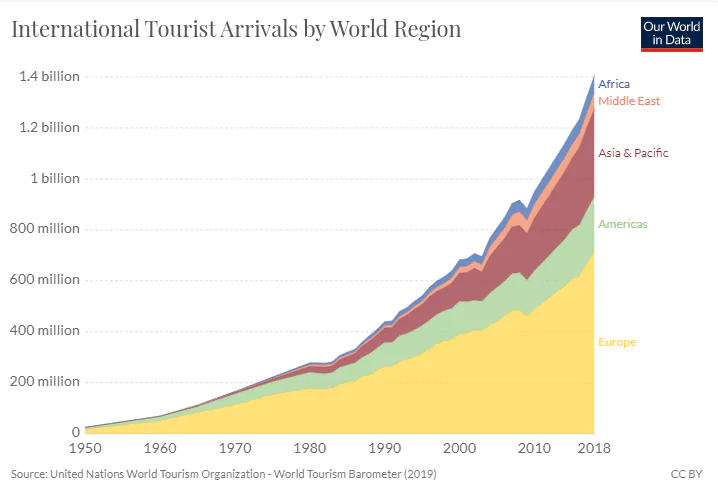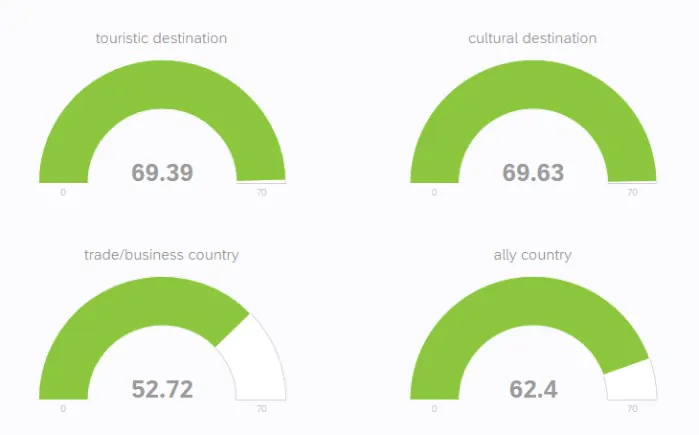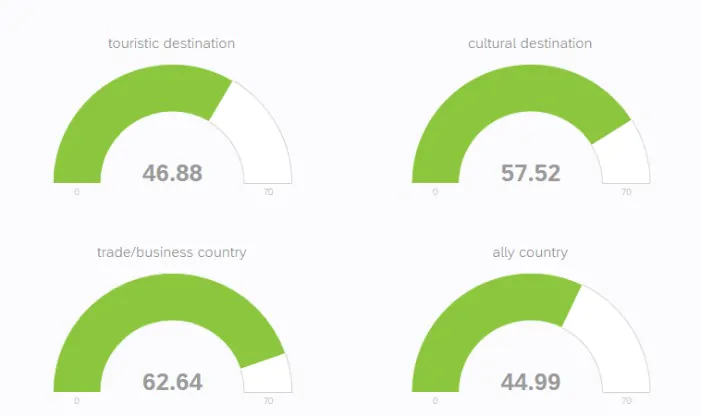by Cihan Cobanoglu, Faizan Ali, Dr. Valentina della Corte, Dr Giovanna del Gaudio, Dr. Ayse Collins, and Ms. Luana Nanu
As the name suggests, ‘Overtourism’ refers to an excessive number of tourists at a destination. While overtourism is a polarizing subject, it is mostly associated with negative impacts of overabundant visitation at a destination. For instance, the number of visitors to
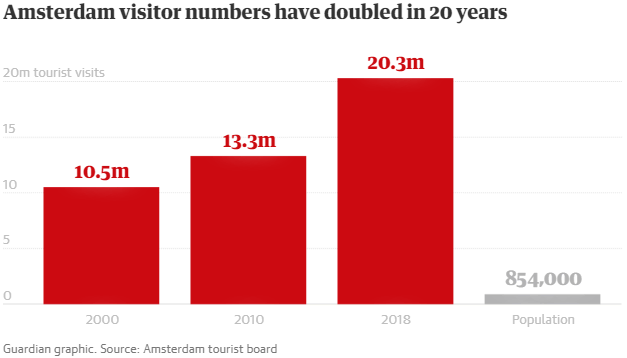

Some examples of the destinations that are often cited with overtourism are Venice, Italy, Barcelona, Spain, Amsterdam, Paris, Bangkok, Cape Town, Ho Chi Minh City, Istanbul, Jakarta, Mexico City and New Delhi [1]. In Venice locals are often found in activities to protest overtourism [2].
The main reasons for the overtourism and its impact on increasing number of destinations are obviously the rise of disposable income around the world, increasing numbers of discount airlines, cruise ships and the travel offerings by shared economies such as Airbnb and Uber.
The massive influx of travelers can disrupt day-to-day local lives, resources such as housing, and negatively affect the environment. Cities like Rome, Paris, Venice, Barcelona, Angkor Wat, Santorini and Bali are having issues of overpriced properties, where rent prices are pushing out local tenants to make way for vacation rentals. The strain of higher pricing is not limited to rentals but is observed in food prices, transportation and gas prices etc. I This follows the basic economic principle of high demand, high prices. n fact, a recent report named “Destination 2030” by the World Travel & Tourism Council (WTTC) warned 20 more cities i.e., Bangkok, Cape Town, Istanbul, Jakarta, New Mexico etc., to be facing the problem of overtourism. Tourism practitioners and academics were discussing the negative impacts of overtourism and how to tackle this issue.
Despite the consistent reminders of the impacts of overtourism, we have a new phenomena on our hands, that have tipped the scales – Covid19 Coronavirus. What started in Wuhan City, China has now spread to 136 countries with around 150,000 confirmed cases and 5393 deaths as of today.
Impacts of coronavirus have been enormous for many industries, specifically for travel industry. The ripple effect of Corona started with some countries implementing travel bans to/from certain countries. The United States was the first country that implemented travel ban to/from China [5] followed by many countries. The travel ban is now implemented towards many countries such as Italy, Iran, South Korea and Japan. Numerous European nations have quarantined entire countries with a complete halt all inbound and outbound travel. As a result, the discussion of overtourism has been replaced with undertourism or no-tourism.

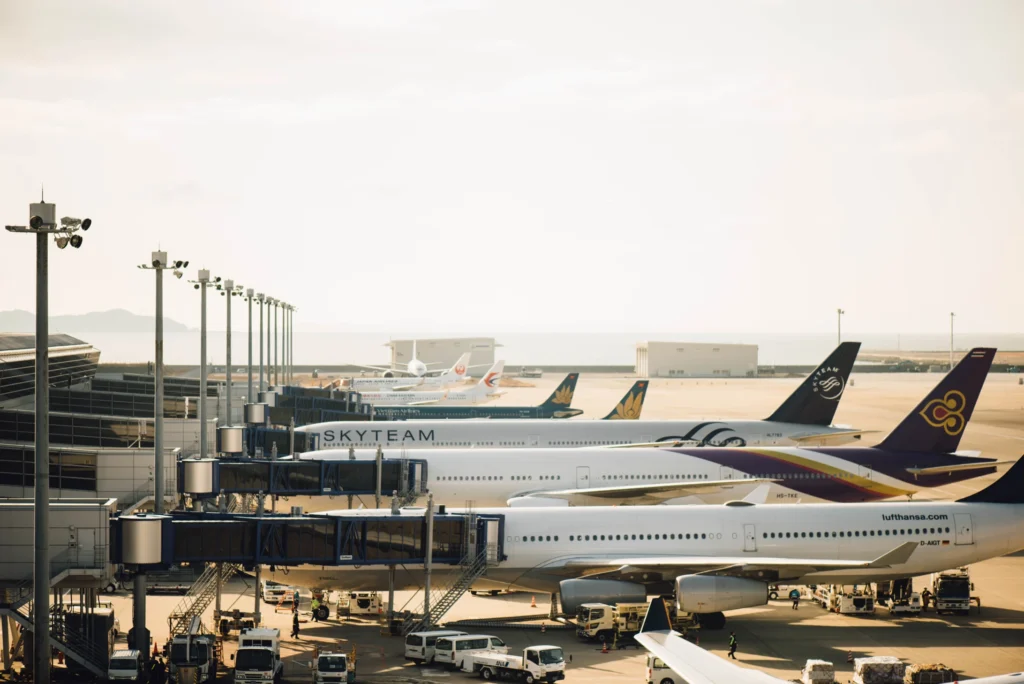


The travel industry has faced many challenges in the past including the 9/11 attacks and financial crisis of 2008-2010, although none of them were similar in magnitude as that of Coronavirus It is our hope that similar to the track record, travel industry will survive this and resurface. Having said that, we believe that the social impacts of coronavirus will be difficult to overcome. Many travel organizations started to lay off staff members and this will likely continue. The biggest role in these tough times lay on governments. They should be supporting all affected industries and the people that are working in these industries. Even though Coronavirus will be over soon (hopefully), the impacts will be here for years to come. With the smart intervention of government incentives, the industry and many jobs may be saved. This crisis will be solved with resilience, perseverance and faith that it will be over.
References
2: https://www.cnn.com/travel/article/venice-tourism-overcrowding-intl/index.html
3: https://ourworldindata.org/tourism
4: https://www.e-unwto.org/doi/abs/10.18111/wtobarometereng.2020.18.1.1
5: https://qz.com/1795615/coronavirus-travel-bans-on-china-imposed-by-growing-list-of-nations/
6: https://www.itb-berlin.com/
7: https://www.ocregister.com/2020/03/12/coronavirus-cancellations-pile-up-for-trade-show-businesses/
10: https://www.nrn.com/sales-trends/us-restaurant-sales-reach-record-863b-2019-nra-says
This article is written by Dr. Cihan Cobanoglu (University of South Florida), Dr. Faizan Ali (University of South Florida) , Dr. Valentina della Corte (University of Naples Federico II), Dr Giovanna del Gaudio (University of Naples Federico II), Dr. Ayse Collins (Bilkent University), and Ms. Luana Nanu (Auburn University).
